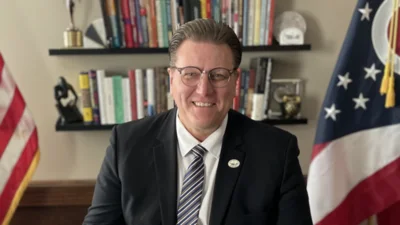The ongoing debate over solar energy projects in Knox County, which has pushed for solar energy since 2020, is intensifying as residents and commissioners grapple with issues of timing, location and community involvement in such initiatives.
The Frasier Solar project in particular faces opposition from various quarters, highlighting the complexities and challenges in transitioning to large-scale solar developments.
More recently, The Buckeye Institute released an analysis noting the project will likely fall far short of tax revenue it has projected.
The planned development has sparked community discussions.
Some, like Howard resident Heather Zeigler, question the environmental impact of solar panels.
“Get educated,” Zeigler said on Facebook.
“Solar isn’t good for farmers in farmland or any amount of acreage that could be used for our food source.”
“Go learn and research the toxic chemicals that are leached from Solar Panels into the air. This is not something you want. It boggles my mind that this is just surfacing to some. Some companies I'm sure are paying big bucks to cover a lot of acreage because there’s a lot of money hungry people out there. So people are easily influenced by hidden agendas.”
Miller Township residents Jim and Connie Boeshart also oppose the Frasier Solar project, citing potential adverse effects on their property and the community.
The Boesharts, who have resided in Knox County for over 65 years, highlight the lack of notification from Knox County commissioners about the solar projects being planned in Miller Township.
“We have done research on other Solar Projects already up and running,” the Boesharts said in a letter to the Knox County Council. “We are hearing so many negative effects living next to a Solar Project. Such as: high winds are likely to cause damage to the solar panels creating bad emissions in the air and create toxic runoff onto adjacent property, noise from the equipment, interference with our electronic devices, and loss of wildlife. And last but not least, our property value will decrease.”
Their sentiments echo wider criticism from members of the citizens' group Preserve Knox County, Ohio, emphasizing concerns about the potential negative impacts on the environment, property values and overall community well-being.
The county’s shift toward solar energy comes in tandem with the Mount Vernon City Council's approval of the "Sustainable 2050" resolution.
This resolution signifies a commitment to phase out fossil fuels, such as natural gas and coal, in favor of energy generated from federally-funded solar panels and wind turbines.
With a majority vote of five in favor and two against, the resolution aligns the city's goals with those articulated by the Mid-Ohio Regional Planning Commission (MORPC).
These objectives include initiatives like prohibiting the use of natural gas stoves in residences and transitioning to electric vehicles.






